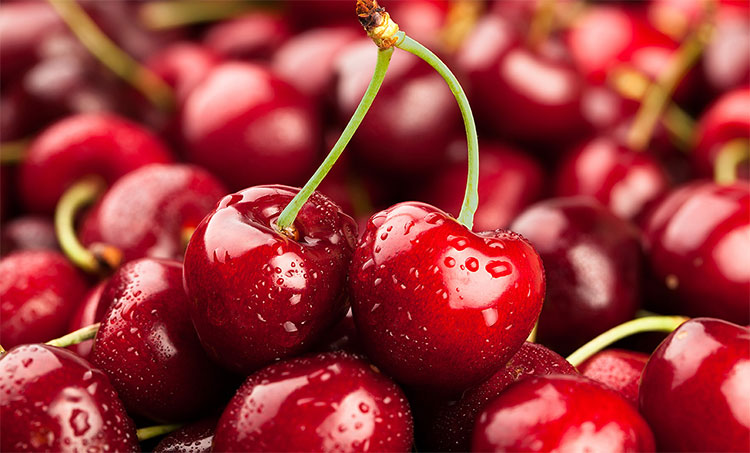Cherry, also known as cherry, is very popular with many people because of its sweet taste, easy to eat, and rich in vitamins. However, eating cherries should also be the right way to avoid poisoning.
According to modern medicine, cherries contain antioxidants that prevent free radicals from damaging cells and tissues. Plus, cherries also contain 20 times more vitamin A than blueberries or strawberries. They also contain the beta-carotene vitamin which is beneficial for the immune system, eyesight and skin.
In oriental medicine, cherry is used as medicine / dish which stabilizes heart, diabetes, cures burns, prevents and reduces arthritis, gout … However, cherries can still cause harm. unhealthy if you do not use it properly.
Is Eating Cherries Really Poisonous?
Dr Man Khai, deputy head of the gastroenterology department of Wuhan No.1 Hospital, said, “The main culprit causing the poisoning is not cherry flesh but cherry seeds. or eaten, cherry seeds contain cyanogenic or cyanide-forming glycosides that can form amygdalin when chewed. “
It is a compound entering the digestive system in hydrogen cyanide. Cyanide is a poisonous substance commonly used in industry, but it also appears in many popular foods such as bamboo shoots or cassava. This substance is rapidly absorbed by the body, very rapidly, and strongly inhibits cellular respiration and can be fatal.
Signs of cyanide poisoning when consuming cherry seeds include: intestinal scratching, headache, nausea … Patients, if not treated promptly, will lead to cardiac arrest, respiratory failure, and dead.
However, according to experts, poisoning only occurs when the cherry seeds have been crushed. If you accidentally swallow this seed without breaking it, don’t worry too much because cherries have a thick and very hard shell, which prevents toxins from spreading and then excreting together. stool. Every day should eat only 200-400 g of cherries.
However, if you are eating normally, there should be no problem. Doctor Man Khai also recommends people with diabetes and children not to eat too many cherries, adults eat no more than 20 each, drink plenty of water each time.
Dr Man Khai continued, no poisonous fruits, finished eating will cause bodily harm and death, but any over-eaten food will disrupt the metabolic imbalance in the body and irritating. The doctor also advises everyone, every day should eat only 200-400g of fruit, in case of Ms. Vuong 5 consecutive days to eat 3kg of cherries, exceeding the maximum allowable amount, making the body uncomfortable and causing the condition. acute enteritis
Dr Man Khai outlined foods not to eat with cherries:
- 1. Cerise + concombre: La cerise contient une grande quantité de vitamine C, mais l’enzyme de dégradation du concombre réduira la vitamine C dans les cerises, affectant l’absorption de la vitamine C.
2. Cerise + carotte: La cerise contient beaucoup de vitamine C qui peut traiter efficacement le scorbut, et la carotte contient un ascorbate, qui réduira l’effet de la vitamine C sur le corps humain.
3. Cerise + foie animal: La vitamine C contenue dans la cerise est oxydée par les ions cuivre et fer dans le foie des animaux. Ces vitamines C sont oxydées en vitamine C déshydratée, de sorte que les cerises perdent leur valeur nutritionnelle d’origine.
Avoid poisoning by eating cherries

Store the cherries in a cool place.
1. The iron content of cherries is very high and also contains a large amount of cyanide. If you eat too much, it is easy to cause hydroxide and iron poisoning. Mild poisoning can be detoxified with cane juice, although it is a good fruit, it should be eaten sparingly, especially by not biting the cherries.
2. The shelf life of cherries is short, so avoid direct sunlight.
3. Cherries should only be eaten for about 3 days, being stored in the refrigerator should not wash with water, avoid spoiling, before eating the cherries should be washed.


